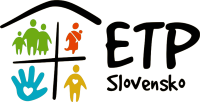Kosice – the city of many cultures
The focus group participants within the INTEGRA International Project met for the second time in Kosice. They exchanged views on the integration of third-countries nationals (TCNs) in Kosice and discussed how the process works and where it should be improved.
Some TCNs who work in our focus group have shared their stories:
Afghan Rayeiz Rahman studies computer science at the Technical University in Košice. Five years ago, his mother – a successful journalist – three younger brothers and a sister left Kabul. It was dangerous for the family to stay at home. Their father, who was a banker, was killed for political reasons. The mother with the children came to Slovakia via the „green“ border. They applied for asylum and settled in Košice. The youngest brother attends elementary school, the other siblings secondary grammar school. „Except for the youngest brother, we all have students jobs, I am in the IT company, my brothers work as waiters, and my sister as a receptionist. Mom is employed as a cook. Until we had learned Slovak, it was not easy, but now we have friends and are happy here. At the very beginning we got help from Marginal and at Archdiocesan Charity of Košice.“
Iryna Sukhonosova from Vinnytsia in Ukraine recently finished her marketing studies at the Ukrainian University. Her husband is the programmer, and in Košice he has found a very good job at IBM. Back home he also worked as the programmer, but he has more opportunities for professional growth in Slovakia so he would like to stay here. Iryna would rather return to Ukraine, but, as she says: „Once I find the job here, I will probably change my mind.“ The rules are strict. Because she followed her husband, she cannot work for a year and has to use the time for settling down. She learns Slovak, but she feels lonely and a bit fruitless.
Young teacher Julia Rokicka comes from Lvov, Ukrajine. She thinks that it will take long time until she finds the job of her dreams. She is actually worried that it might not happen at all. She has been in Kosice for about half a year, her Slovak speaking is fine but she needs to improve reading and writing. Her husband is Slovak whose parents moved to the Ukraine many years ago, but returned from there. He met Julia in Ukraine but they decided they wanted to live in Kosice.
All ten representatives of TCN communities who took part at the meeting said that they are working or studying here, but especially that they are trying to find a new home or have already found it many years ago. In the past, some Afghans or Iranians settled in Košice, but the trend of recent years is mainly the arrival of young people from Ukraine. Many of them want to stay here because Košice offers not only the job opportunities, but also security and peace.
Non-profit organizations such as Marginal, The League for Human Rights and the Archdiocesan Charity of Košice (and IOM or others) provide help to economic migrants and asylum seekers (legal counseling, Slovak language courses, assistance with accomodation, social and cultural services). These organizations take on a role which in other countries is often provided by local government. In Slovakia, it is not required by the law that local government provides services to migrants and asylum seekers. Abroad, an integration policy initiated by the local government is a common practise.
The city of Košice is aware of the benefits that migrants bring: they fill gaps in the labor market (there is a lack of skilled craftsmen and also high-level professions), pay taxes and contribute to the diversity of the city. However, it is necessary to distinguish between those who have come to work or study and those who have fled their home country because of persecution or war. Those who plan to settle for economic reasons usually do not need much support and are able to manage administrative issues. What they lack is basic cultural orientation, knowledge about existing services, and a feeling that the city is interested in new citizens and is willing to assist with their integration into society. It turns out that the emergence of a „first contact point“ within a municipality (ideally supported by a mobile application) would be a useful step.
Currently, Foreign Police record about 4900 TCNs in Košice, which makes up roughly two percent of the population. A representative of the District Police Headquarters in Kosice reported that Kosice is a very safe city. They record only a very small number of offenses or crimes committed by foreigners, or where TCNs are victims.
The participatns of the focus group agreed that Košice is the city of many cultures, as it has always been. After the focus group, several participants went for a city walk to take pictures and illustrate it with cameras (see the pictures as examples for the PhotoVoice activity, which will run during July).
The aim of the INTEGRA project is to build on the historical tradition of multinational Košice and to help the City to develop an effective agenda of TCN integration.


